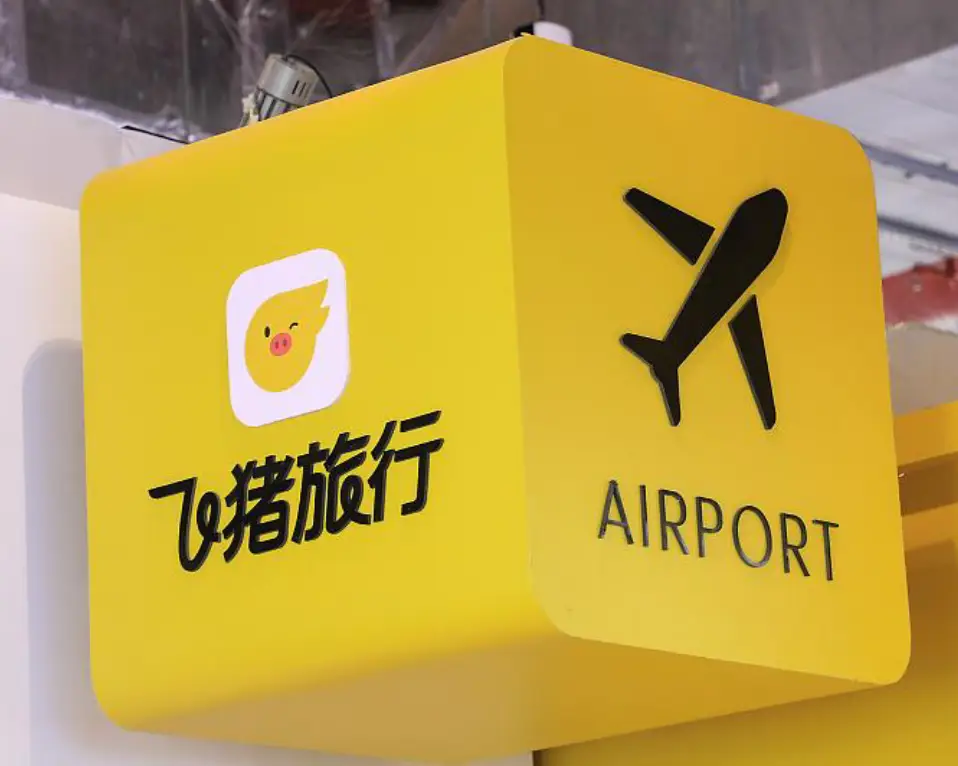AI-Powered Business Transformation: Why Alibaba's Flying Pigs Struggles to Take Off
![]() 05/09 2025
05/09 2025
![]() 556
556

Can AI revolutionize the OTA (Online Travel Agency) landscape in the hotel and travel industry? Perhaps no one is more keenly aware of this question than Flying Pigs, Alibaba's travel subsidiary.
Firstly, from an OTA market perspective, Flying Pigs consistently lags behind its competitors. According to QuestMobile data, the ranking of online travel platform user scales in the first half of 2024 is as follows: Tongcheng Travel and Ctrip Travel (both exceeding 100 million users), Qunar (exceeding 50 million users), and Flying Pigs (29.94 million users).
Moreover, data from Qimai shows a persistent gap in download volume between Flying Pigs and Qunar, which ranks third, over the past year.

Daily app downloads comparison between Qunar and Flying Pigs over the past year, chart source: Qimai
On the other hand, Flying Pigs benefits from Alibaba's ecosystem, which still holds expectations for its potential. Before the large model era, Alibaba's ecosystem might have bolstered Flying Pigs through brand influence and business synergies (such as Alipay integration and access to Alibaba's Taobao platform). However, despite these supports, Flying Pigs emphasizes its alignment with OTM (Online Travel Ecosystem) rather than traditional OTA models.
Post-large model era, Alibaba has emerged as a prominent player in AI. The company's vast AI resources and how they integrate with its products are noteworthy. Flying Pigs' CEO has announced a transformation into an AI-driven intelligent company, and recently launched the AI product "Ask." However, resources alone do not guarantee success; we must analyze how much opportunity Flying Pigs has to turn around within Alibaba's ecosystem with AI.
This involves two questions: What does Flying Pigs need to do with AI? And what unique advantages can Alibaba provide?
Addressing these questions will clarify whether AI can change the OTA landscape and the extent to which Alibaba's support for Flying Pigs in AI is "cost-effective."
01. What Are Flying Pigs' Advantages in Leveraging AI?
As the first year of broader AI application and the Agent era, Flying Pigs has been actively pursuing AI initiatives since the beginning of the year.
In early March, it announced the integration of DeepSeek and launched the "AI Itinerary Assistant," claiming to be the first online travel AI product integrating multiple large models. However, the actual value of these features remains to be seen.
At the end of March, Zhuang Zhuoran, CEO of Flying Pigs, announced a comprehensive transformation into an AI-driven intelligent company, aiming to improve supply chain quality and scale through AI, optimize supply and demand matching, and provide more personalized services. This mirrors actions by other major OTAs like Ctrip and Meituan, which have also announced increased AI investments.
Last month, Flying Pigs launched "Ask," requiring an invitation code, similar to Manus' strategy. However, test results show that while the product form has evolved, it is still far from addressing users' real pain points effectively.
These actions seem publicity-driven, which is understandable given the importance of public opinion and market awareness in the AI industry. However, analyzing OTA platforms' AI strategies through user pain points reveals constraints from the AI industry's development.
Convenience and affordability are OTA users' top concerns, which can be broken down into: small information gaps, high information fluidity, efficient information presentation, rich product/service content, and bargaining power. While large platforms generally offer similar product/service richness and bargaining power, abilities like information integration and presentation can be optimized with AI.
However, AI's current development is not perfect. For instance, Agent's basic pain points revolve around information interaction and interconnectivity, abilities also required for OTA platforms in AI.
In this context, platforms' understanding of AI development becomes crucial. Some platforms are already ahead in AI exploration, leaving Flying Pigs behind.
Alipay, for example, launched ZhiXiaoBao last September, an Agent version of its service. Unlike Flying Pigs' publicity-driven AI initiatives, Alipay's approach is more grounded. In April, Alipay launched its first payment MCP, aligning with the industry's latest "last mile" for AI landing, the Model Context Protocol (MCP).
While Flying Pigs followed Manus' actions in early March by launching "Ask," its agility in utilizing Alibaba's AI resources is not evident. This suggests that Flying Pigs' understanding of AI is not significantly different from other OTAs and remains average within the industry.
However, cultivating AI combined with business understanding takes time. Flying Pigs' advantage in AI can only come from unique support within Alibaba's ecosystem.
02. What Can Alibaba Provide to Help Flying Pigs Soar?
Unfortunately, Alibaba does not have unique advantages to offer Flying Pigs.
Firstly, Alibaba's AI resources are not exclusive to its group products. They are concentrated in Alibaba Cloud and Tongyi, with Alibaba Cloud serving external clients and many Tongyi models being open-source.
Secondly, without strong product development capabilities, Alibaba struggles to provide substantial ecological support. This is evident in the development of other Alibaba group products, like the Tongyi app, which initially served as an external showcase for Alibaba Cloud and fell behind in the AI to C application race.
In contrast, Quark, another Alibaba product, has integrated closely with AI post-large model era, competing with ByteDance's Doudou. Quark has become Alibaba's flagship AI product, assuming significant responsibilities in the company's AI layout.
When Alibaba group products encounter new opportunities, there is also the "Ele.me-ization" scenario – long-term lukewarm development but serving as the only placeholder in a certain field. When industry players challenge this placeholder, Alibaba closely follows and strongly supports it.
For instance, when JD.com entered the food delivery market, igniting a price war, Taobao accessed Flash Purchase, supported by Ele.me's delivery, allowing Ele.me to leverage the heat.
Flying Pigs cannot follow Quark's path but can only be Alibaba's placeholder in the OTA industry, waiting for a clearer path for change before obtaining resource support.

Can Flying Pigs rely on its AI understanding to become an OTA industry dark horse like JD.com in the food delivery sector? "New Position" believes there are doubts.
As mentioned, Flying Pigs' AI understanding is average within the OTA industry. Even during the "Ask" hype, Flying Pigs' download volume lagged behind Qunar, indicating a small proportion of core users interested in "Ask." The heat generated did not trigger industry-wide followings.
From Alibaba's financial reports, it's difficult to ascertain Flying Pigs' specific profitability. However, as mentioned, Flying Pigs consistently ranks outside the top three in OTA market share.
Without a significant advantage in understanding OTA and AI, the opportunity for the OTA industry to find profitability in AI is unlikely to be initiated by Flying Pigs. Its future prospects may be passive.
Whether AI or ecological resources, what Alibaba can offer Flying Pigs is not unique and can be easily obtained by other OTAs. The only unique advantage Alibaba can currently provide may be its IP, which, as proven pre-large model era, is not a decisive factor for OTA platform development.
Therefore, Flying Pigs still needs to wait for an opportunity where the OTA industry finds profitability in AI.
03. Conclusion
As a payment and lifestyle service platform, Alipay's understanding of Agent is advanced. Its service scope often includes OTA services, making it an observation window for lifestyle service platforms exploring AI rhythms.
Thus, Alipay is expected to initiate an AI boom in related platforms and industries.
Alipay's keenness to integrate its business with AI stems from its uncomfortable position these years. It is neither a placeholder nor faces significant competition from WeChat Pay. In the AI era, this crisis can turn into an opportunity.
A platform's ability to understand the integration of its business with AI is not achieved overnight. Flying Pigs' lack of keenness may stem from being too comfortable as Alibaba's OTA placeholder for too long.
The title image and all images within the article have been sourced from the internet.







